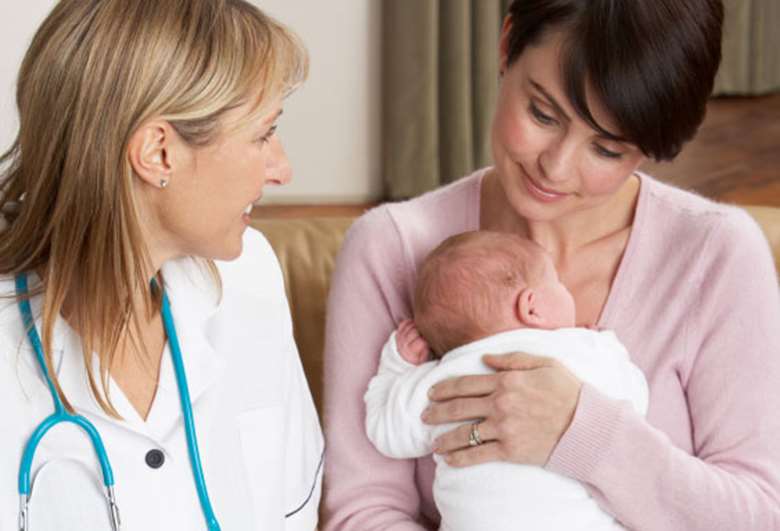Cuts and Brexit uncertainty putting children's health at risk
Wednesday, January 23, 2019
Universal early years services continue to bear the brunt of cuts to public health services, with no targeted help for children and families in poverty, children’s doctors warn today.

- No progress in reducing child poverty and inequality two years on from a landmark health report
While the Government has made pledges to prioritise children’s health, cuts to public health services and uncertainties about Brexit pose substantial threats to progress, the Royal College of Paediatrics and Child Health (RCPCH) claims.
The State of Child Health: Two years on scorecard evaluates the extent to which the Government has made progress on recommendations made in the RCPCH’s 2017 landmark report.
This was the first report to bring together data on 25 measures of the health of UK children, ranging from conditions such as asthma, diabetes and epilepsy, risk factors for poor health such as obesity and a low rate of breastfeeding, to child deaths.
It found that while there had been some improvements to the health of UK children over the last decades, there was ‘clear disparity’ with Europe, a major cause for concern.
The latest scorecard reveals that England continues to lag behind other Western European countries on a range of child health outcomes, particularly in universal public health provision. They include:
- Reducing child poverty and inequality – universal early years services continue to face cuts, with no targeted help for children and families in poverty.
- Child deaths – infant mortality reductions have stalled and ‘a catastrophic picture’ forecast by 2030 if this is not reversed.
- Breastfeeding – the UK has some of the lowest breastfeeding rates in the world.
- Tobacco and alcohol control – no progress in extending smoking bans, and no minimum price for alcohol, unlike Wales and Scotland.
However, it says that progress has been made in some areas, including:
- Tacking childhood obesity – introducing the soft drinks industry levy, the Government’s Childhood Obesity Plan, NHS England’s targeted support for obese children
- Child and adolescent mental health – substantial investment in community-based mental health services
- Reducing child deaths – a Reduction of Avoidable Mortality in Children Programme has been set up and a National Child Mortality Database created, allowing lessons to be learnt and avoidable deaths prevented
- Reform of the health system – by 2028 the NHS will move towards a 0-25 years service model, person-centred and age-appropriate care for mental and physical health needs.
Professor Russell Viner, president of the Royal College of Paediatrics and Child Health (RCPCH) said, ‘This scorecard reveals great progress for child health. We are particularly pleased to see children feature as an integral part in the recently published NHS Long Term Plan. We are witnessing a hugely welcome shift towards the prioritisation of child health, which is exciting not just for us as paediatricians, but for the health prospects of children today and generations to come.
‘But there are significant risks on the horizon. The political uncertainty caused by Brexit looms large, raising legitimate concerns about recruiting enough children’s doctors and nurses and access to medicines and to EU funding for vital child health research. Government must act now to ensure a focus on the children’s workforce and investment in child health research are prioritised to mitigate the potentially damaging impact of Brexit.’
The report praises the Scottish Government’s bold plans aimed at tackling child poverty, obesity and mental health and in Wales, a series of measures have been outlined to reduce childhood obesity rates and to protect children from alcohol exposure. However, progress in Northern Ireland isn’t as encouraging, with the two-year political deadlock stalling any real progress in child health policy, it says.
Jonathan Ashworth MP, Labour’s shadow health and social care secretary, responding to the report, said, ‘Labour has long campaigned for higher priority on improving the health and wellbeing outcomes of children, and we welcome the progress that’s been made.
‘But ministers can’t ignore the fundamental truth that rising child poverty, deprivation and widening inequality betray our children and worsen health outcomes. It’s particularity shocking that reductions in infant mortality have stalled.
‘The ongoing deep cuts to public health services will further detrimentally impact child health outcomes and ministers should have reversed these cuts in the recent NHS Long Term Plan.
‘Improving the health and wellbeing of every child will be a significant priority for Labour.’
The Department of Health and Social Care has been asked for a comment.




